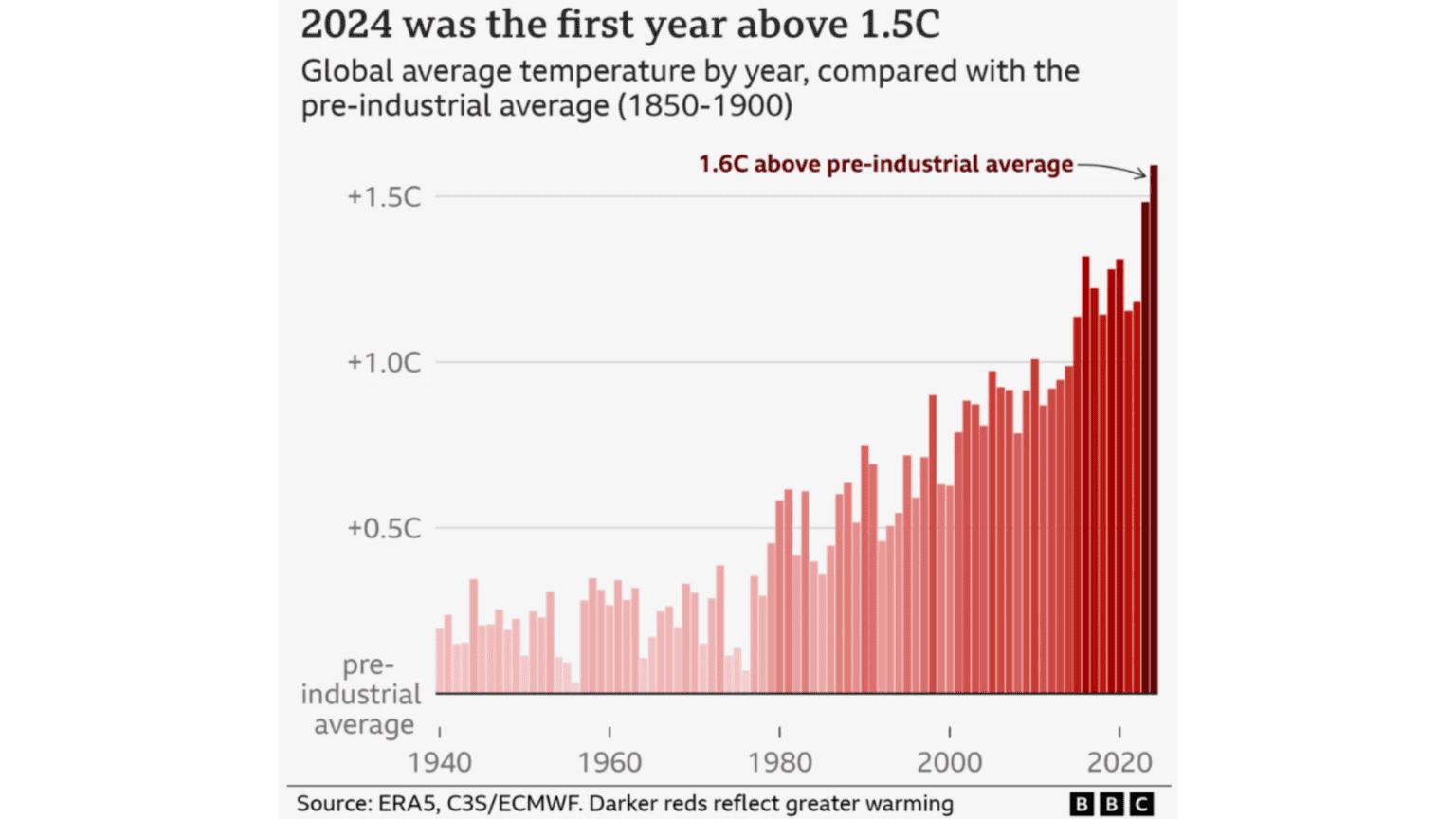Welcome to Greengage Monthly, your go-to roundup of the latest developments, innovations, and stories shaping the world of sustainability. From climate policy shifts to innovative solutions, here’s what’s making headlines this month.
A Stark Warning About The 1.5°C Threshold
New data from the European Copernicus Climate Service reveals that the planet is edging dangerously close to exceeding the 1.5°C warming threshold. While 2024 marked the first calendar year to surpass this important figure, this does not yet signify the breaching of the long-term 1.5°C target outlined in the Paris Agreement.
UN Secretary-General António Guterres has referred to this alarming trend as “climate breakdown,” urging immediate action to reduce greenhouse gas emissions by 2025. The findings underscore the urgent need for nations to accelerate their climate efforts to prevent catastrophic impacts.

Donald Trump Withdraws U.S. from the UN Paris Agreement
President Donald Trump has once again vowed to withdraw the US from the Paris Climate Agreement, the world’s most important effort to tackle rising temperatures. This marks a reversal of President Joe Biden’s earlier commitment to global climate cooperation.
The US will now have to wait a year before it will be officially out of the pact. The White House announced a “national energy emergency”, outlining a raft of changes that will reverse US climate regulations and boost oil and gas production.
The Paris Agreement, while not legally binding, serves as a critical framework for coordinated action to limit global warming. Exiting the pact places the U.S. alongside only a few nations outside the agreement and raises concerns about global unity in tackling climate challenges. This development coincides with record-breaking global temperatures, emphasising the growing urgency of sustainable action.
Beavers and Climate Resilience: A Missed Opportunity in the UK?
In the UK, controversy surrounds the government’s decision to block licensed beaver releases, despite expert recommendations. Beavers, as a reintroduced native species, play a crucial role in mitigating climate impacts, such as flooding and drought, while supporting ecosystem recovery.
Experts advocate for managed beaver releases to maximise benefits and reduce human-wildlife conflicts. However, resistance at the policy level threatens to delay progress in leveraging this natural solution for climate resilience. The ongoing debate highlights the need for science-driven decisions in environmental governance.
Norway’s Leading the Charge Towards Zero Emissions
Norway has achieved a groundbreaking milestone, becoming the first country where electric vehicles (EVs) outnumber petrol-powered cars. This shift reflects decades of aggressive incentives and policies to promote zero-emission transportation, with Norway aiming for 100% of new car sales to be electric by 2025.
While Europe’s EV market has seen a slowdown in recent months, Norway’s success demonstrates the potential of focused policy and public buy-in to drive meaningful change. This achievement sets a benchmark for other nations striving to decarbonise their transportation sectors.
Wildfires in Southern California: A Wake-Up Call for Climate Action
The start of 2025 brought devastating wildfires to Southern California, with the Pacific Palisades blaze marking the most destructive event in Los Angeles city history. The fires, fuelled by extreme drought and hurricane-force winds, emphasise the growing risks posed by climate change.
Over 180,000 residents were evacuated, and damage estimates exceeded $50 billion. Local water and firefighting resources have been stretched to their limits, prompting calls for reinforcements from neighbouring states.
Stay tuned for next month’s roundup, where we’ll continue to spotlight the stories shaping our sustainable future.



